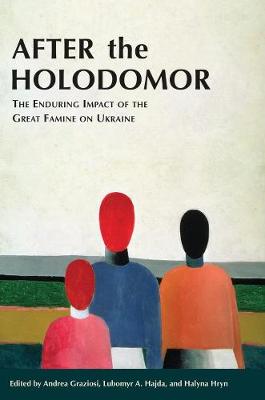Harvard Papers in Ukranian Studies (HUP)
3 total works
After the Holodomor
by Andrea Graziosi, Lubomyr A. Hajda, Halyna Hryn, Alexander Babyonyshev, Elena Boeck, and Karel C. Berkhoff
Over the last twenty years, a concerted effort has been made to uncover the history of the Holodomor, the Great Famine of 1932–1933 in Ukraine. Now, with the archives opened and the essential story told, it becomes possible to explore in detail what happened after the Holodomor and to examine its impact on Ukraine and its people.
In 2008 the Ukrainian Research Institute at Harvard University hosted an international conference entitled “The Great Famine in Ukraine: The Holodomor and Its Consequences, 1933 to the Present.” The papers, most of which are contained in this volume, concern a wide range of topics, such as the immediate aftermath of the Holodomor and its subsequent effect on Ukraine’s people and communities; World War II, with its wartime and postwar famines; and the impact of the Holodomor on subsequent generations of Ukrainians and present-day Ukrainian culture. Through the efforts of the historians, archivists, and demographers represented here, a fuller history of the Holodomor continues to emerge.
Churches and States - Studies on the History of Christianity in Ukraine
by Halyna Hryn, Bohdan R. Bociurkiw, Bohdan Budurowycz, Teresa Chynczewska-Hen, and Larry Wolff
These essays provide new insights and a fresh perspective to the discipline.
Challenging the Code - Essays on Ukrainian Literature and Culture
by Halyna Hryn and Roman Koropeckyj
The essays also variously explore the interface of literature, language, theater, and film, and touch upon the strictures and distortions imposed by censorship and ideology, uncharted currents of reception, and the interpretation of key texts, particularly the light they shed on the "political unconscious." Special attention is devoted to the transnational functions of Ukrainian literature in the modern period. A full bibliography of Grabowicz's foundational contribution to the field completes the collection.

